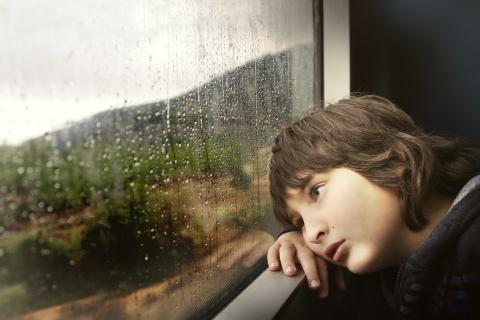
“How beautiful upon the mountains are the feet of him who brings glad tidings, announcing peace, bearing good news…”
Dawn breaks on Christmas morning and weeks of anticipation and hope suddenly burst forth in excitement and joy. The words of the prophet Isaiah eloquently express the wonder of the moment, a song of joy at the birth of the prince of peace. For children of course and not a few adults as well, the excitement of Christmas morning is also about the presents that wait under the tree, or in many cultures, beside the crèche of Niño Jesus.
For some of us, however, Christmas dawns with a mixture of joy, heartache, and emptiness: perhaps feeling the pain and loss of loved ones no longer present; separation from family or friends; or perhaps feeling overwhelmed with the pressures of consumerism in the face of financial hardship.
With such mixed emotions, how do we find ‘the meaning of Christmas’?
My family’s worst Christmas is now remembered as one of our most special ones: As new Maryknoll Lay Missioners assigned to a pastoral team in a barrio (neighborhood) of Caracas, Venezuela, my wife Patti and I found ourselves celebrating our first Christmas away from family in Boston with our 5 and 7-year-old daughters in a crumbling housing project in a hillside slum of 40,000 people. Perched on a mountainside on the periphery of the capital city, many of our neighbors lived in tin and cardboard shacks. We had no running water but received water from a community spigot that we used to fill 50-gallon drums that held our week’s supply of cooking and washing water.
Yet this December water had not come for almost a month, and the week before Christmas our barrio lost electricity. As difficult as these circumstances were, what made us more miserable was how we missed Christmas lights, holly, Christmas trees and American/English Christmas carols. Venezuelan carols sounded strange, in a rapid Spanish that we struggled to understand, punctuated by loud Afro-Caribbean drums.
Christmas morning came, ushered in by firecrackers and more strange, loud carols. Our daughters Amanda and Abby eagerly went to our “Christmas tree”, a scraggly branch in the corner of our living room that we had covered with white foam of laundry soap to resemble snow. Under the tree lay their gift, a Venezuelan version of “Legos” that I had found on a day’s trip to the city center, spending more than we budgeted. As Amanda and Abby began playing with their “Legos” they soon found that local manufacturing was not up to Danish standards: the pieces didn’t fit together!
Watching our frustrated children playing with their Christmas gift in the darkened room with the loud drumming of Venezuelan carols outside, Patti and I teared up, homesick, wondering if leaving Boston for Maryknoll mission in South America wasn’t a big mistake. Moments later, our neighbor, Haydee, came by and asked Amanda and Abby if they wanted to help her make hallacas, the traditional Venezuelan Christmas meal. Soon the whole family was cleaning banana leaves on Haydee’s porch, and learning the elaborate process of making these tamale-like delicacies while learning Venezuelan carols from Haydee’s daughter Sandra.
Little did we know at the time that making hallacas would become an essential part of our family’s Christmas traditions – as much as the rhythmic drumming of Venezuelan carols that are no longer strange but also a cherished part of Christmas for us. Ten years later, when we returned to the States, we experienced ‘reverse culture shock’ and had another hard Christmas, finding ourselves missing our favorite Venezuelan Christmas sounds and customs.
For all the wonderful things written about the true meaning of Christmas, it seems to me that each of us must find that meaning for ourselves, finding our own way in the midst of our loneliness, our sorrows or pain.
We don’t find the meaning only once and then we’re done. Every Christmas we must find its meaning anew, in the midst of new challenges or worries, discovering Hope and Joy in spite of this year’s troubles. A treasured Latin American saying goes something like: “Pilgrim, there is no set path for life’s journey: you make your own path by walking.”
How do we find this meaning, this path, when we are discouraged, spent, the lights are out, and there is no water? What our neighbor Haydee taught us that miserable first Christmas in Venezuela years ago still rings true: we find the path together.
As St. John reflects in today’s Gospel, the birth of Jesus in a crude barn on the periphery of the Roman Empire in that cruel and violent time was a ray of hope – as much today as it was then: “this life was the light of the human race; the light shines in the darkness…” There is certainly too much hatred, division, and violence in our country today. It is hard not to feel that these are dark days indeed. But as pilgrims on this path, with the help of each other, we can come to realize that “the darkness has not overcome it” and the light of Christmas shines on in us as we walk together with family, seekers of peace, strangers, and newfound friends.
